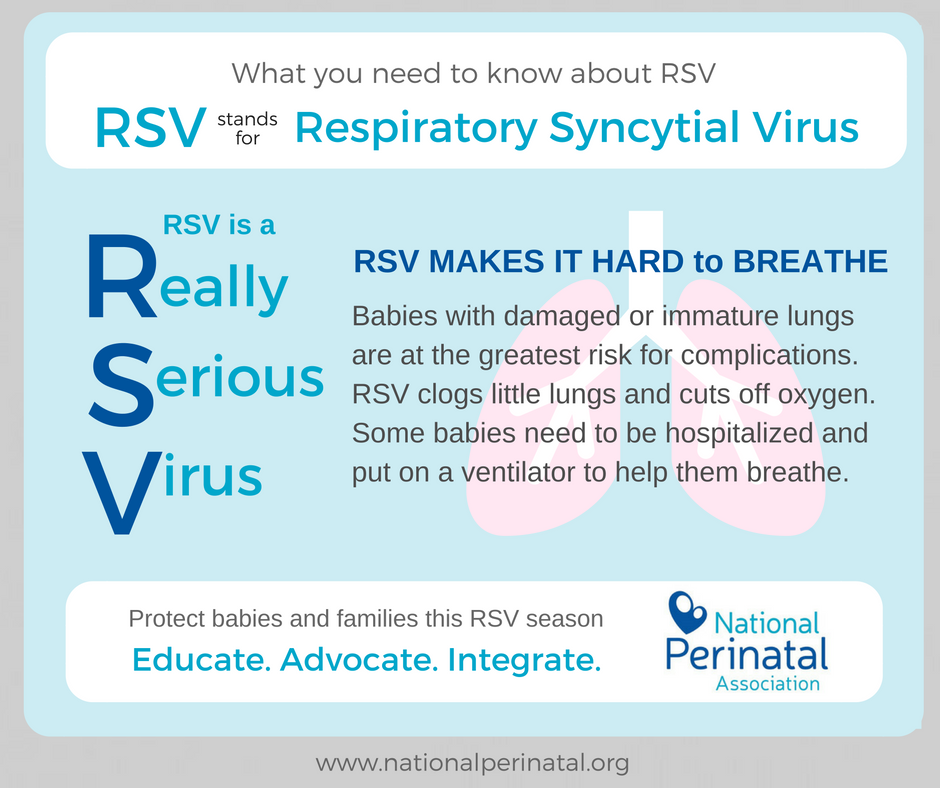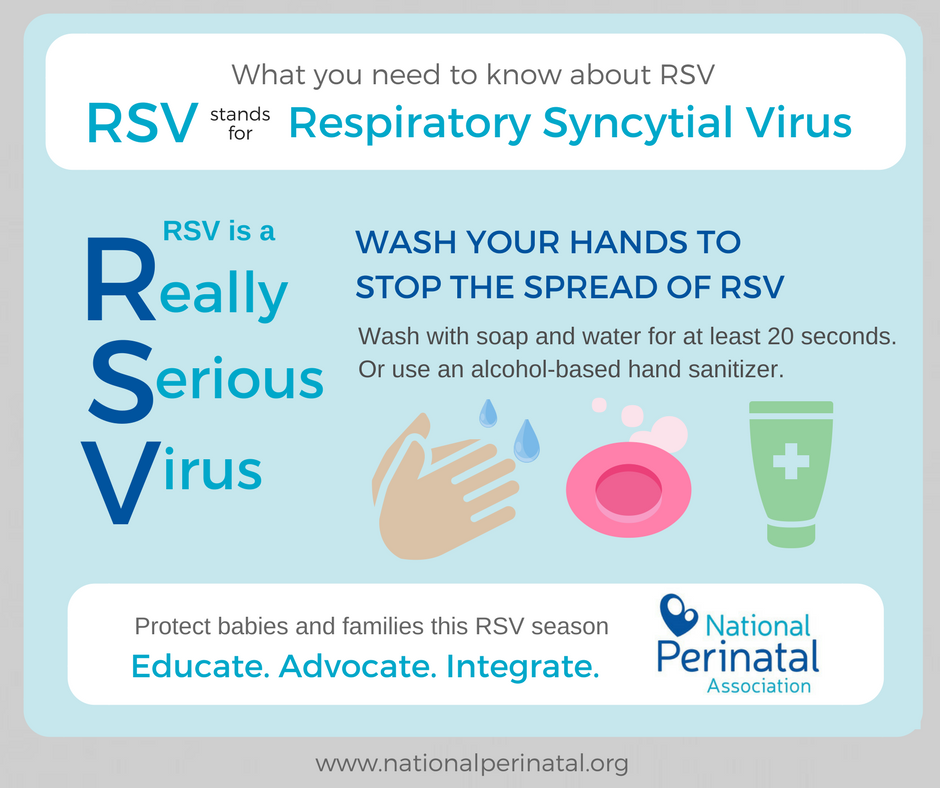With cold season almost here, many of us are stocking up on tissues and cough drops and crossing our fingers that no one sends his or her kid to school with a fever. But while getting a virus stinks as a child or an adult, you know after a few days of soup and TV watching, you'll feel better. Infants aren't always so lucky. All humans are at risk of catching the respiratory syncytial virus, more commonly known as RSV. But while older kids and adults can shake this virus off, it's a leading cause of death in infants worldwide, second only to malaria.
RSV is characterized by coughing, wheezing, and fever, and it's the leading cause of bronchiolitis (inflammation of small airways in the lungs) and pneumonia in infants. What makes RSV so scary is that you could have it without even knowing it and infect a baby. For most adults, kids, and older healthy babies, RSV looks a lot like a normal cold because they have the immune system and lung development to fight the virus. But premature infants and newborns aren't as strong.
More from CafeMom: 15 Terrifying Contraptions People Actually Used to Put Their Kids In
"Parents need to know that even a little cough or a scratchy throat in an adult can be spread as a life-threatening RSV infection in a small baby," explains Dr. Mitchell Goldstein, professor of pediatrics at Loma Linda University Children's Hospital in California**.** "For many, it is a cold and does not progress to the coughing, air hunger, and poor oxygenation that sends our most at-risk babies to the hospital."

The other thing that makes RSV so scary for parents is that once your babies contract it, there's no magic pill to heal them. "There are no medications or antibiotics that can treat this infection directly," says Dr. Goldstein. Babies can be placed on oxygen or ventilators in hopes that their lungs can fight off the virus, but any relief is usually supportive, and no parents want to watch their baby struggle to breathe. Or fight to survive.
All parents of infants should be aware of the warning signs of RSV. "Babies who have cough, difficulty getting their breath, hard and fast breathing, temperature of 100.4 or greater, blueness around the mouth or extremities, and lack of interest in usual activities should be seen by their doctor immediately," says Dr. Goldstein.

.
As much as we might want to, grabbing your babies and sealing the door to the nursery with duct tape until spring isn't a realistic option. But there are a few things you can do to try to stack the deck in their favor when it comes to RSV.
While there isn't a vaccine against the virus, there is a monthly antibody injection called Synagis that can help prevent some babies from getting sick. Babies who receive the shot are usually those who are at a higher risk for getting RSV, like preemies or those who have a family history of asthma or lung conditions, so check with your pediatrician to see if your baby is eligible.
More from CafeMom: 8 Nursery Hacks & Shortcuts That Save Time & Stress
Besides antibodies, Dr. Goldstein recommends frequent handwashing to banish germs and keeping your social calendar to a minimum when you know people might be ill. You should also avoid close contact between your baby and anyone who could potentially be infected. Yes, we know the whole extended family wants to hug, hold, and kiss the baby over the holidays, but do they also want to visit him or her in the hospital if baby gets sick? Of course not.




